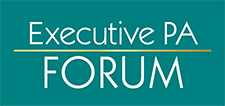Performance Reviews and Appraisals – Anxiety-inducing or an Opportunity to Re-focus?
Have you got a performance appraisal coming up? Do you even have an annual review in place? How often do you sit down with the person(s) you support and/or HR to discuss your career path and progression?
Now is the best time of year to reflect on your year gone by, analyse where you could be better recognised and rewarded, and set your career goals for 2024. We have some stellar advice and resources to help you if you have a review coming up so you can be best prepared. If this is not something you have had in a while (or ever) in your organisation, this advice should resonate with you and motivate you to make it happen.
Be Real. Be Clear
Career Consultant Siobhan Kelly founder of Mosaic Consultancy shared with us fantastic advice and guidance coming up to review time
- Don’t assume your manager/Executive knows what you’ve done over the previous 12 months. They don’t. Give examples related to the KPIs of your role and the core values of the company.
- Include the results and the value added to the executive/their team/wider company. Take the time to reflect on the wide ranging impact your work has.
- Don’t tell people what you did, show HOW you did it e.g. collaborating with remote teams etc. and include results.
- Under no circumstances give yourself a 3 if you really deserve a 5 on the scoring metric. Some people get embarrassed to be seen rating themselves so highly. Beat that inner critic with a stick if you need to and yourself the most honest and accurate score.
- Use the opportunity to negotiate for your career aspirations for the next 12 months. Do you want to get support for an in-depth training course, join a professional association, or volunteer in area that will help you progress in your career? Now is the time to say it and explain why it will help you in your role, and make you an even more valuable member of the team and the wider organisation.
- Take the time to prepare ‘a highlight reel’ document that they can take away with them. Highlights that align with your appraisal, your achievements, your future goals. There should be no confusion in relation to you achieving or indeed over-achieving on your KPIs and total clarity on what you need going forward.
- A closed mouth won’t get fed. I said this at the Executive PA Summit, and it is something I firmly believe. If you want a pay rise, bonus, promotion, new responsibilities SPEAK UP. This is an ideal time to lay everything on the table and discuss with your executive. You can tell them what you want and ask them what steps you need to take to get them and agree a timeline.

Seize the Opportunity
Vision & Leadership Coach and Mentor Lisa Mitten shares her advice when it comes to preparing for your performance review:
- Take time to reflect on the past year, create clear notes on what worked and what didn’t work for you. Be honest with yourself.
- Remember, feedback is an amazing opportunity to grow and learn. Constructive feedback is a privilege, it’s your window to develop your strengths and skills.
- Take time to prepare your own feedback to your executive/manager and come to your appraisal with possible solutions, going forward, with regard to what didn’t work or go as planned etc. Also consider what supports and resources you need in place to help you do your best work.
- Create clarity around the direction you want to move towards in the coming year. Your appraisal is an opportunity to sell yourself, if there are any projects, areas of the business or trainings you would like to do / get involved in, now is your time to make the suggestion.
- Keep an open mind.
- Be confident and use your voice, this is your chance to shine!

Task Tracking and Key Questions
We recently learned some great advice at the recent Executive PA Summit from Paula Brady, former EA and now Performance Improvement Specialist who works with Senior Leadership to get the best out of them. Paula recommends asking two key questions of the person(s) you support:
- What do I do on a daily basis that helps make your life easier?
- What else can I do more often that will help make your life easier?
She also advised to keep a track of your tasks and activities every day and week so that you yourself have an overview of the work that you do but that you can also demonstrate more clearly your contribution. Here is an example of helpful Weekly Task Tracker sheet that Lynn Walder shared on LinkedIn recently, a great way of both reviewing and demonstrating the results of your performance. You can make a copy, choose the headings that apply to you and get tracking!

Aligning Personal and Organisational Strategy
A massive A-HA moment at the recent Executive PA Summit was during Siobhain Danaher’s talk on decision fatigue and decision making. Set a personal strategy for yourself for the next year. It is possible to then look at how this aligns with the organisational strategy. Chances are that you can see overlap and a cohesion.
If you repeatedly get sucked into taking on tasks and activities that are extraneous to your priority responsibilities, that repeatedly fall outside the scope of either of these strategies you have to consider if the rest of your work will suffer. Ultimately you want to complete the tasks and work on the projects that will enable your leader and the organisation to achieve success.

What is a career conversation?
In case you haven’t had a review recently (or ever at your current organisation) we recently came across an excellent model and tool that may be of help to you. The Career Equation by Erica Sosna encourages you to have a career conversation with your manager. According to Erica, a career conversation is a valuable opportunity for you and your manager to reflect on your career interests and the opportunities that exist for you. It is a conversation that you own and lead about your direction of travel in your career. You can use it to share your goals, plans and hopes and to ask for support, time, mentorship or stretch opportunities that could help you get there.
Erica recommends the following for a successful career conversation:
- Book a quiet, private space – no distractions for you or the person you support.
- Allow at least an hour for it.
- Send an invite that sets out the purpose of the conversation and the high level agenda – set out below.
- Bring copies of your career timeline, a career design statement (how you want your career to look), career goals and career plan to share.
A career conversation can act as an exploration of the kinds of career experiences you would like to have, and setting some career goals that excite and engage you will motivate you to create a plan that helps make these a reality.
A note from author Fiona:
If you want to explore what your ideal career will look like and how to get yourself there from where you are now, you should strongly consider our Executive PA Forum Elevate Membership Programme.
While we believe that you should have a separate meeting to discuss your training and development needs, we know it’s not always realistic so your performance review could be your best opportunity to broach the subject.
If you are going to bring up the topic of getting support for your training and development during your appraisal, make sure to research the courses and training that are available, accessible and fit around your schedule.
Ask yourself why you want / need a particular training or course, then narrow your search to the choices that will deliver the best for you.
Once you have chosen your preferred training/courses, you should be able to explain to your Manager/HR:
- How this training/course will benefit you.
- How this training/course will benefit your organisation.
These are the two most important elements when it comes to preparing to ask for support of your professional development. Once you have answered these questions, you will be more confident in looking for sign off -and you will be more likely to get it.
*Additional – for every course, training and membership option we offer at Executive PA Forum, we have an Investment in Professional Development Proposal to help you explain the features and benefits to your HR/management team. Please get in touch should you require one – even if it’s not for one of our courses or memberships we would be delighted to help you. Contact fiona@executivepaforum.com for more.
Below are some training options to consider with the Executive PA Forum in the coming year:
*The PowerHouse Programme a powerful transformational journey in professional and personal development that is included in ELEVATE
*The Advanced Executive Assistant Diploma. Enrollment deadline for 2024 is January 15th 2024.
The Adam Fidler Academy is now enrolling for Level 5 Level 6 and certified FETAC Diploma. For a more in depth explanation of time requirements, workload, expectations, and cost please contact aisling@executivepaforum.com.
The Power EA International Masterclass – For C-suite professionals seeking a higher, transformative learning experience.
Rise Programme Multiple professional development opportunities throughout the year.
Executive PA Summit 2024 If you can only commit to one training event next year, make sure it’s this one – our annual 2 day conference to include workshops, networking and learning, taking place May 16th & 17th 2024. Register here.
If you need any other advice or help with any of the above, please get in touch!

